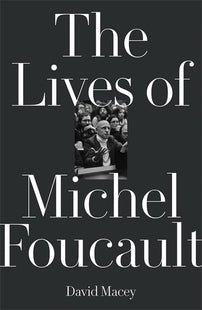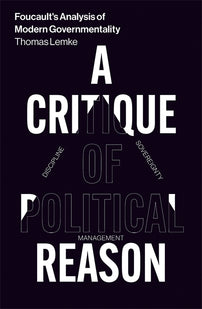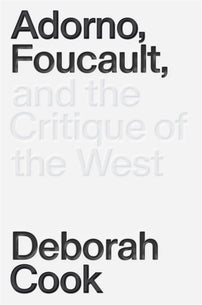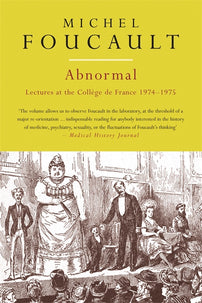What does ‘Left’ mean?
Mitchell Dean responds to the review of his book The Last Man Takes LSD: Foucault and the End of Revolution (co-written with Daniel Zamora) published in the journal Foucault Studies.

One is always grateful when a reader has taken the time to review a scholarly work in the humanities and social sciences. We have been particularly fortunate to have received quite a number of favourable reviews (for this and its earlier French version) in a number of countries. They have come mainly from the Left (Il Manifesto, Liberation, New Statesman, Los Angeles Times, Information) but also from conservative publications (The Spectator). Given that the book departs from Foucauldian orthodoxy in the contemporary Anglophone world, we would not expect acclaim in a journal devoted to him, Foucault Studies. In that sense, Jasper Friedrich’s review provides the reader with a relatively mild critical appraisal and raises interesting points about the nature of our project and the further investigation it opens.
In doing so, Friedrich consciously avoids some of the central substantive arguments of the book that concern the nature of Foucault’s relation to neoliberalism and in passing suggests there is nothing new in the book that adds to that debate. The latter might be true but only for readers who have following the concerns we – and others – have addressed over the last decade. In the sense that they have not been answered and for the sake of brevity, we mention only two points we think might qualify as ‘new’ to most of Foucault Studies’ readers. First, we absolutely reject the weight of Foucauldian scholarship that claims that the main thrust of his contribution on neoliberalism is to offer a concept or theory of the enterprising self or entrepreneurial subject. We argue that Foucault found in neoliberalism a form of regulation that did not ‘subjectify’, i.e., fabricate subjects, but that worked as an action upon the environment. Second, in our detailed account of the context and take up of Foucault’s lectures on the topic, we refer to the one contemporary French reception of the lectures, in the Second Left journal, Autrement, published in September 1979, in which Foucault is understood as advocating ‘a subversive use of neoliberalism’ that would create an ‘enterprise-oriented Left’. Now, what is interesting about this is that it places Foucault’s lectures in relation to their immediate reception, as part of a specific dialogue, and not that of retrospective projections of later commentators. As far as we know, Foucauldians have not responded to either of these points.
Friedrich refers to what he sees as a more complex ‘co-optation’ argument, in the manner of Boltanski/Chiapello and Nancy Fraser, which, by definition, leaves the ‘co-optee’ somewhat innocent. By contrast, our argument examines the formation of a style of thought, and is not concerned with questions of guilt or innocence. Foucault is a key node within this formation. A few of the factors we examine include: the literary theory of the subject, the post-68 experimentation with everyday life, the celebration of transgressions in the form of the ordeal, the Parisian reception of American economic liberal ideas, the anti-totalitarian movement, centrist political elements on the Left, and the reception, use and dissemination of these ideas within Anglophone intellectual coteries. We analyse how the latter operated at Berkeley through the History of the Present newsletters and write of a ‘California Foucault’. But one could equally have analysed the London-based reception in the late 70s and early 80s. None of this was co-optation but it was the formation of a thought style that would become close to hegemonic at the self-consciously ‘critical’ end of the humanities and social sciences today.
But all of this belongs to scholarly debate and reconstruction and, as Friedrich notes, we view the book as opening a wider investigation into the nature of contemporary critical theory, not to close it. However, we can’t avoid two questions today – even if we should not consign Foucault to the ‘dusty shelves’. What help is Foucault today politically? And in what sense is Foucault a thinker of the Left? As Friedrich acknowledges. Foucault was indeed anti-welfare state, and anti-socialist, and he avoided the questions of inequality and economic and even sexual exploitation. He announced the end of revolution – the subtitle of our book. He offered instead a politics of everyday life, of self-experimentation, that could benefit from light-touch modes of regulation or the indirect mechanisms of governmentality. How does this type of politics address the urgent climate catastrophe we are facing, the intimately related massive inequality that has worsened since his time, and even the raging, recurrent, global pandemic that the ravaged social and health apparatuses of states – no matter how compromised by their relation to capitalism – are fighting? How does it begin to combat the neo-fascisms that consolidate around every environmental and public health disaster? We even argue that Foucault’s aesthetics of existence fails to provide the basis for an effective and enduring politics of gender and sexuality. Having read Foucault’s lectures on his own work, the now famed Chicago School neoliberal, Gary S. Becker, asked a question of Foucault in 2012 that requires some intellectual honesty for loyal Foucauldians, ‘But well, what does the Left mean?
[book-strip index="1" style="display"]




